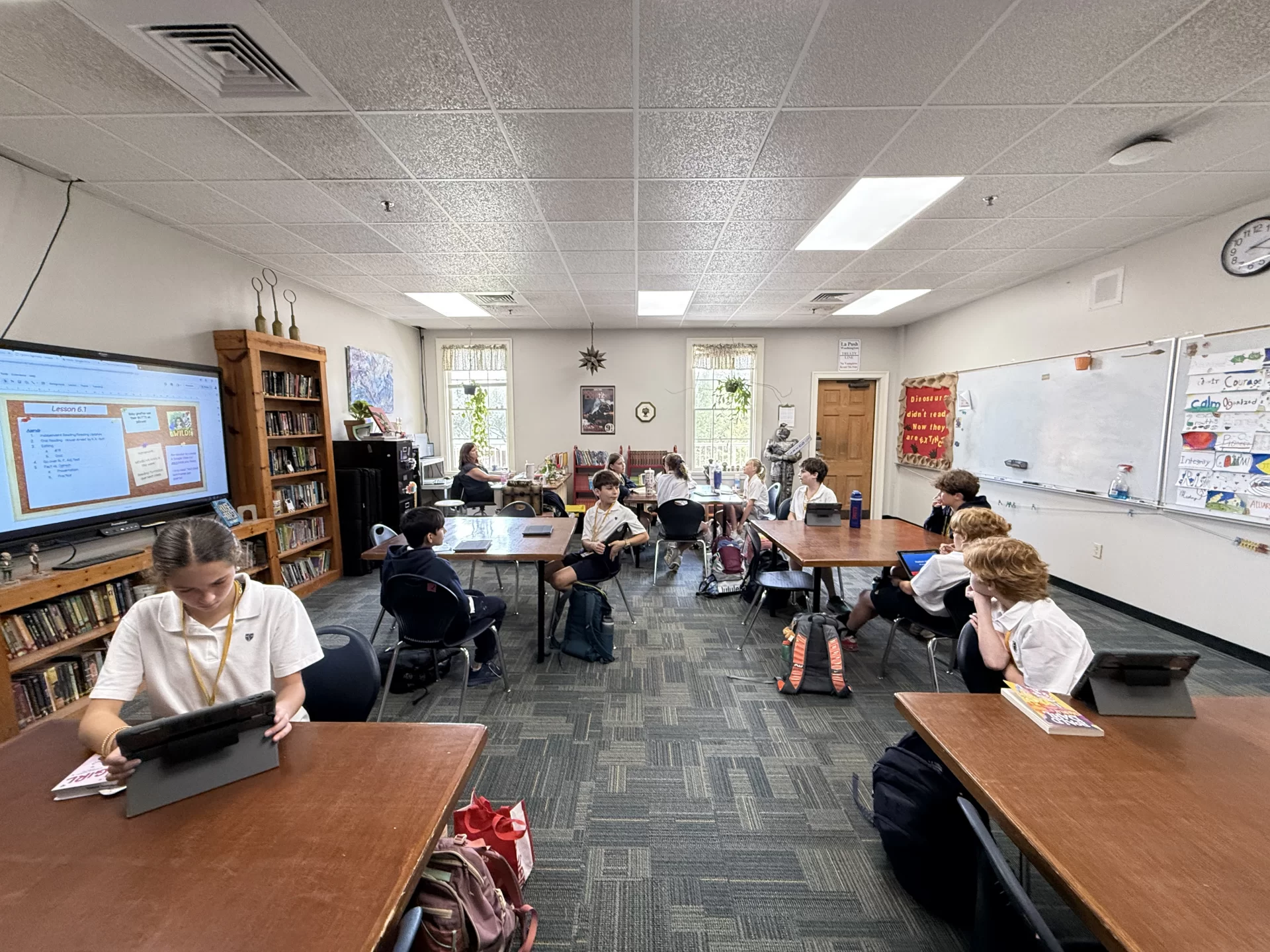- Admission
- Discover Episcopal
- Our Program
- Athletics
- Arts
- Spirituality
- Student Life
- Support Episcopal
- Alumni
- Parent Support
- Knightly News
- Contact Us
- Calendar
- School Store
- Lunch Menu
« Back
Why Does Class Size Matter?
October 16th, 2024
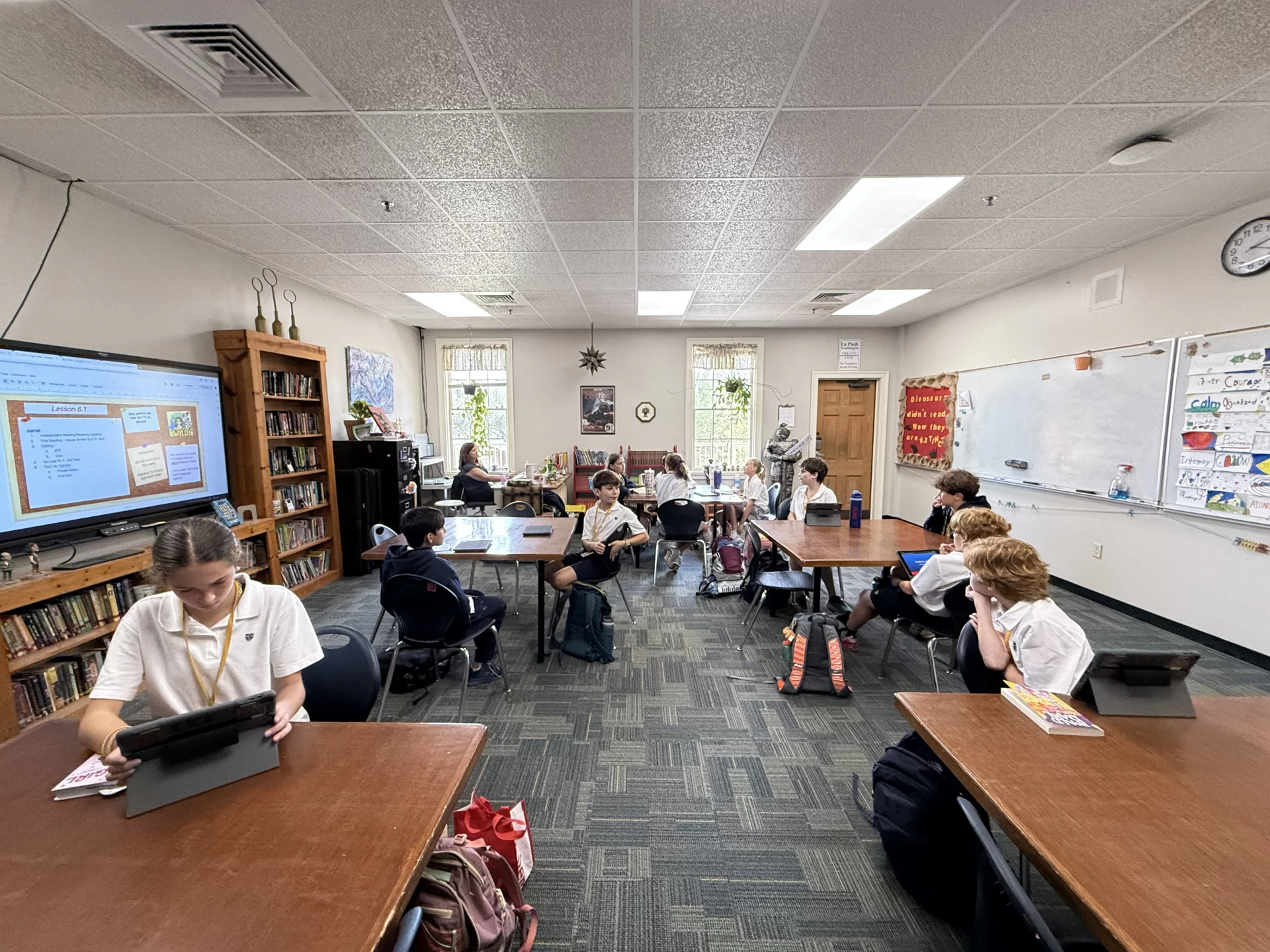
“The best thing about small class sizes is that students don’t fall through the cracks,” says English teacher Martha Stickle. “If a student is having a rough day, I can see it immediately and offer support.” Stickle’s Middle School classroom is a calm, relaxing space with handmade student affirmations and student baby photos pinned to the walls. It’s comfortable and homey and the ideal setting for small group discussions.
Recently, 14 sixth graders seated at five tables discussed the books they are reading. As Stickle checked in with the students, she made individual book recommendations because she knows what each student enjoys reading. The fact that Episcopal class sizes average a 12-to-1 student-to-teacher ratio means she also knows the students beyond academics. “It allows me to get to know students on a personal level in many ways that go much deeper than which language arts skills they are mastering,” she says. “I learn how they celebrate birthdays with their families, what they’re looking forward to on the weekends, and how they view the world around them. When we share those kinds of things with each other, we are building community and celebrating both our similarities and our differences.”
Leadership in Upper School
The benefits of small classes occur in all divisions, and Global and Social Studies Director Dr. Rebecca Kuhn sees the same positive impacts among her older students. “Building relationships is at the heart of our professional teaching standards and we are better able to do this with fewer students in each class,” she says. “These relationships help us foster the leadership capabilities of our students, guide them on their spiritual journeys, and nurture community with each other while connecting them to the wider Baton Rouge community.” Dr. Kuhn leads the new Service Learning and Community Impact course, a student-led class that examines barriers to a just world and connects students with the Greater Baton Rouge community. The small class size supports thoughtful discussion on meaningful topics, engaging conversations with guest speakers and field trips that enhance course content.
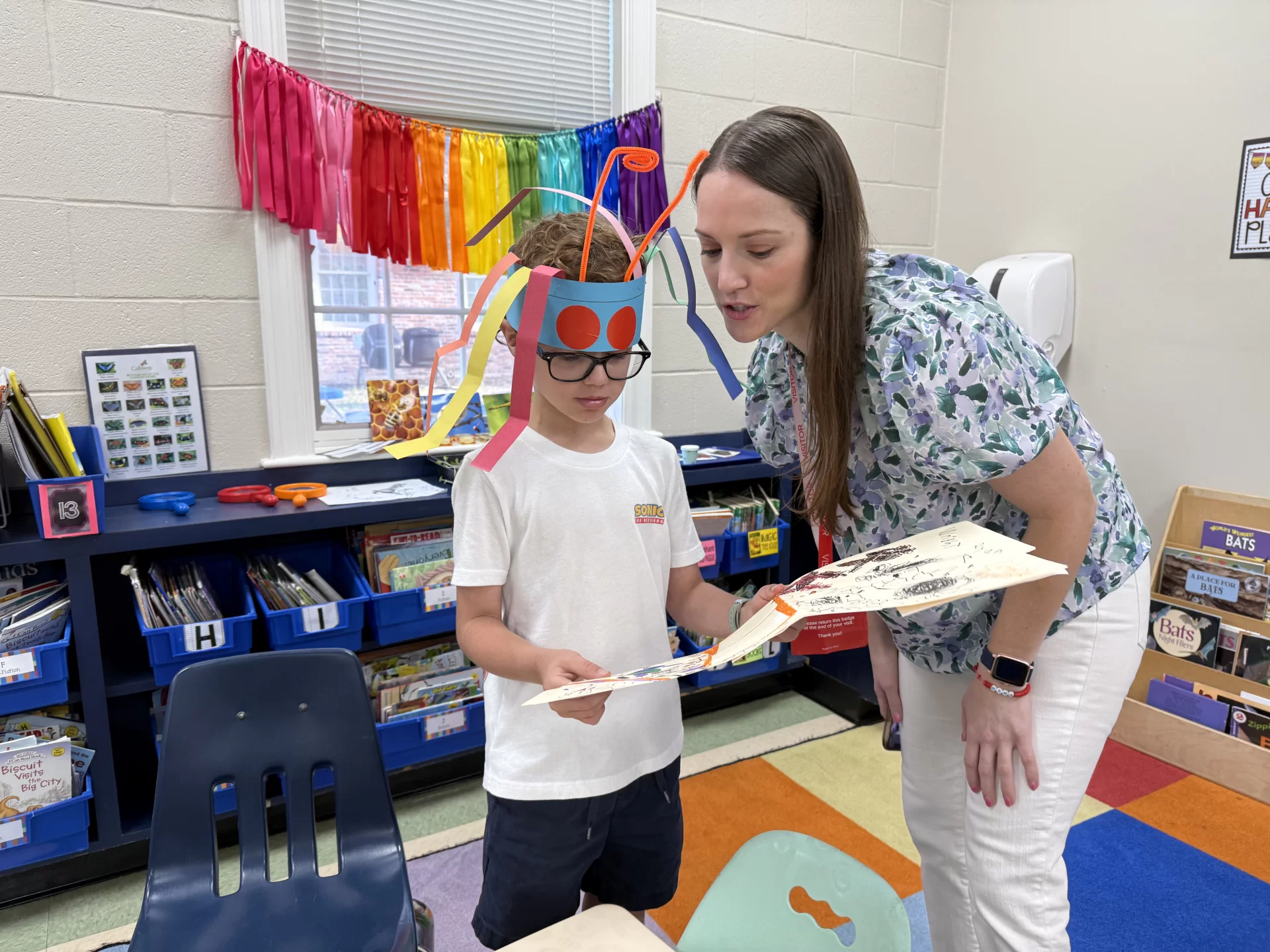
Curiosity in Lower School
In Lower School, small class sizes foster curiosity and exploration. “Children have more opportunity to ask the teacher questions and to do small and large group activities in every subject,” says PreK-4 teacher Stephanie Ezell. “Teachers can also easily do activities outside of the classroom with a smaller class size, such as cooking a recipe in the Quest kitchen or doing a science experiment where everyone can participate together.”
In addition, Ezell says class sizes make it possible to build community throughout the Lower School. “With smaller class sizes, we are also able to do special activities during the year with children from other grade levels,” she says. “For example, PreK-4 children have fifth grade buddies. Our classes are small enough that we can easily do DEAR (Drop Everything and Read) with our fifth grade buddies, sit with them during Lower School Morning Meeting, and participate in other celebrations during the school year.”
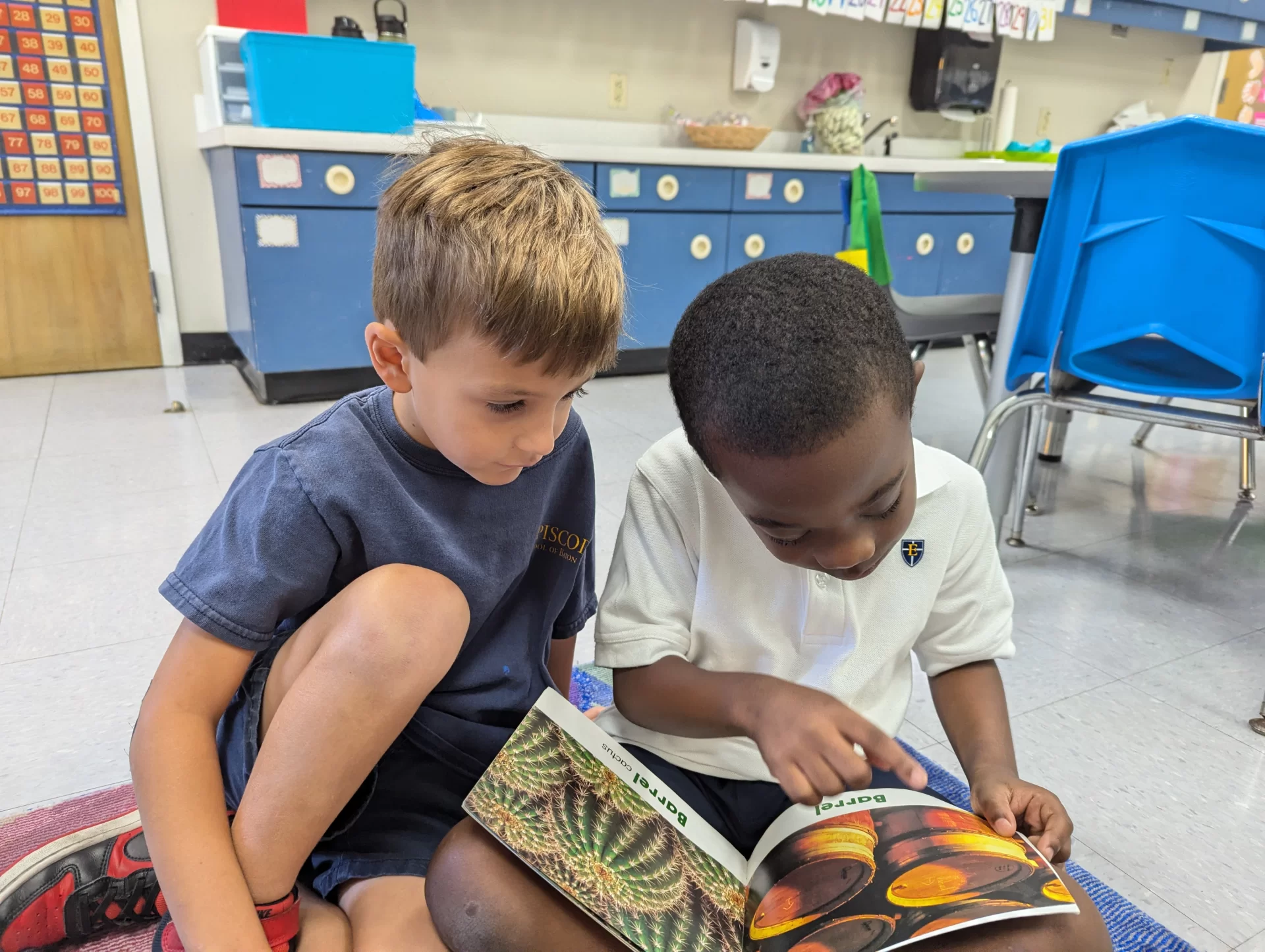
A Community of Learners
The feeling of community that starts in the classroom permeates throughout the Episcopal campus. As students walk to class, younger Knights light up when they see their senior buddy on the sidewalk, and teachers chat with groups of students in the quad. Learning in a small community fosters a culture of togetherness that students and visitors feel. “The children know that they are in a safe, supportive, loving community of friends,” says Ezell. “When students get to know each other well, they are more likely to take risks in sharing their writing and to make book recommendations to each other,” says Stickle. “For students, small class sizes should give students access to their teacher during classes since there are fewer students in a class,” says Dr. Kuhn.
A recent article in the National Association of Independent Schools “Independent” Magazine points out that while parents of independent school students want their child to “get a high-quality education, and everything that comes with it, at the heart of their desire is a place where their children feel valued. A strong sense of community is essential to create a culture of mattering.”
Community is created in environments where people know and care about each other. Episcopal’s small class sizes matter because when students and teachers know each other, there is a sense of belonging that makes learning more engaging and lessons more meaningful.
The Episcopal School of Baton Rouge 2025-2026 application is now available! For more information on the application process, to schedule a tour, or learn more about the private school, contact us at [email protected] or 225-755-2685.
Other articles to consider
 Sep11A Tradition of Faith and Community: The Fourth Grade Bible Blessing
Sep11A Tradition of Faith and Community: The Fourth Grade Bible BlessingLower School celebrated a milestone as fourth grade students received new Bibles.
See Details Sep11Introducing the Class of 2026 National Merit Semifinalists and Commended Scholars!
Sep11Introducing the Class of 2026 National Merit Semifinalists and Commended Scholars!Introducing the Class of 2026 National Merit Semifinalists and Commended Scholars!
See Details Sep5Building Community through Chess
Sep5Building Community through ChessMembers of the Middle School Chess Club describe it as a fun opportunity to become a better chess player. Read more about this club that has recently experienced tremendous growth.
See Details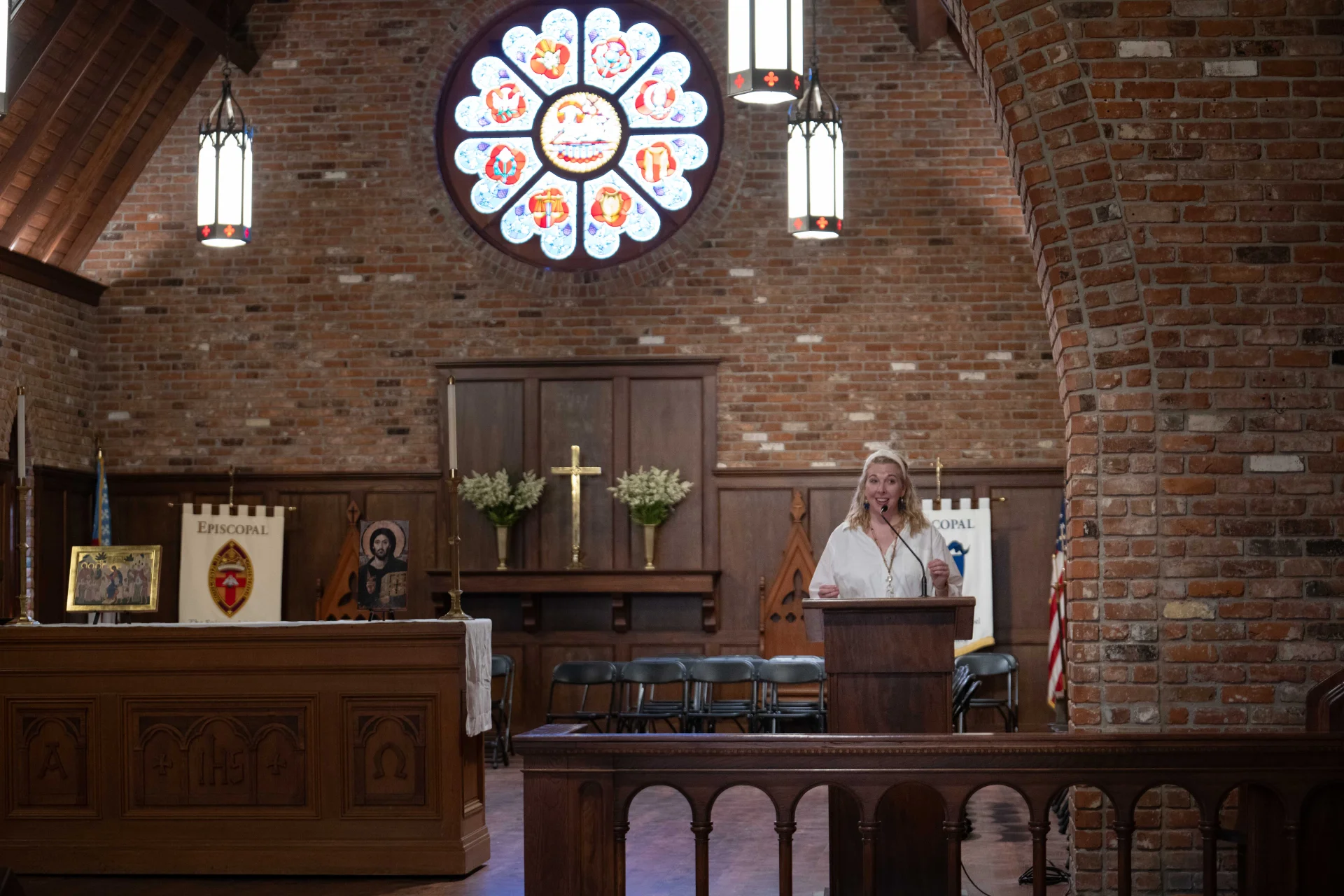 Sep4Finding Joy and Community in New Experiences
Sep4Finding Joy and Community in New ExperiencesCarrie Poynot challenges others not to fear failure and to find joy in trying new things. Read her recent Upper School Chapel message.
See Details
Categories
- All
- Admission
- Athletics
- College Bound 2019
- College Bound 2020
- College Bound 2021
- College Bound 2022
- College Bound 2023
- College Bound 2024
- College Bound 2025
- Counselors Corner
- Episcopal Alumni
- Giving
- Head Of School
- Lower School
- Middle School
- Spirituality And Service
- Student Work
- The Teachers' Lounge
- Upper School
- Visual And Performing Arts
Recent Articles
- 09/11/25A Tradition of Faith and Community: The Fourth Grade Bible Blessing
- 09/11/25Introducing the Class of 2026 National Merit Semifinalists and Commended Scholars!
- 09/5/25Building Community through Chess
- 09/4/25Finding Joy and Community in New Experiences
- 08/28/25Beyond Numbers: Bringing Social/Emotional Learning into Middle School Math
- 08/28/25Pursue Excellence: The Center for Excellence in Teaching & Learning


